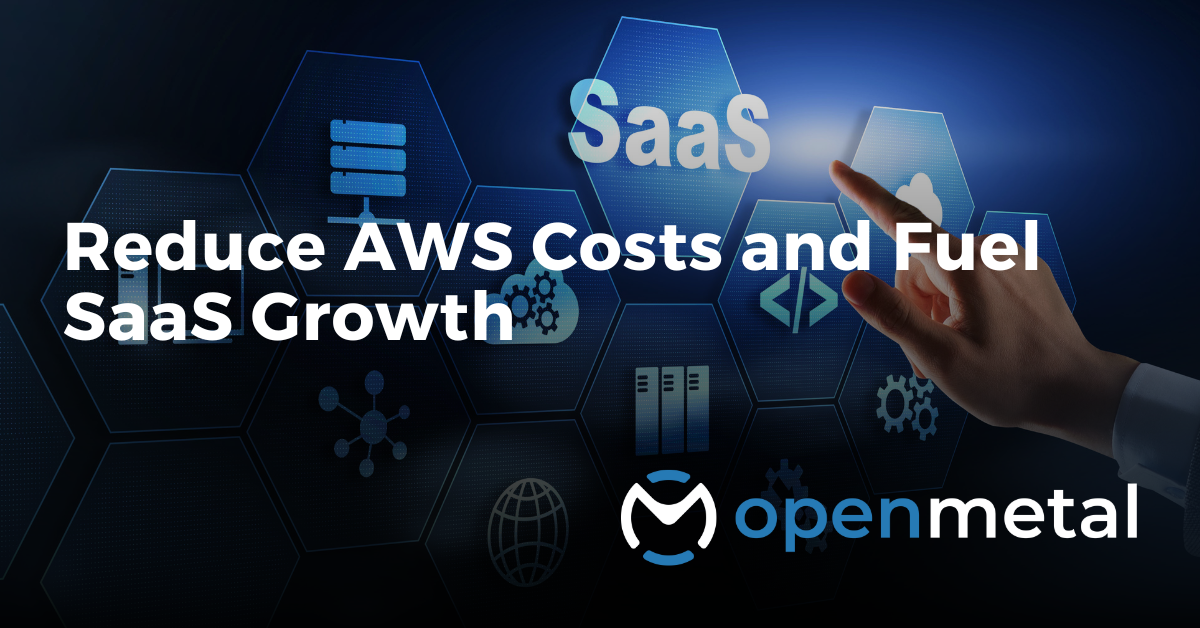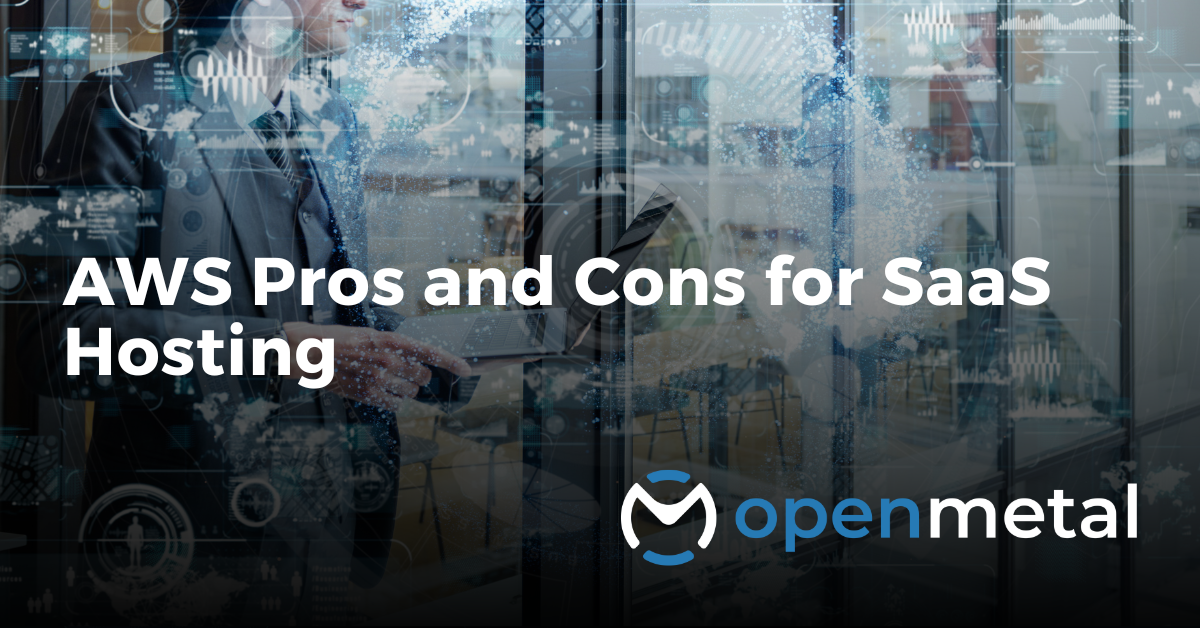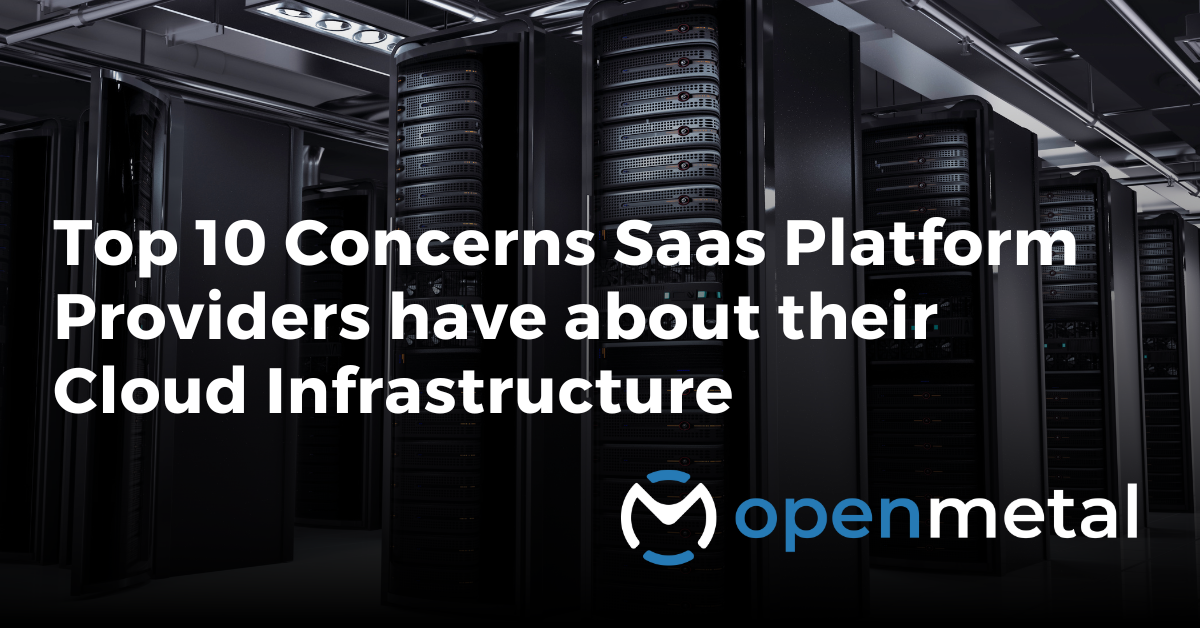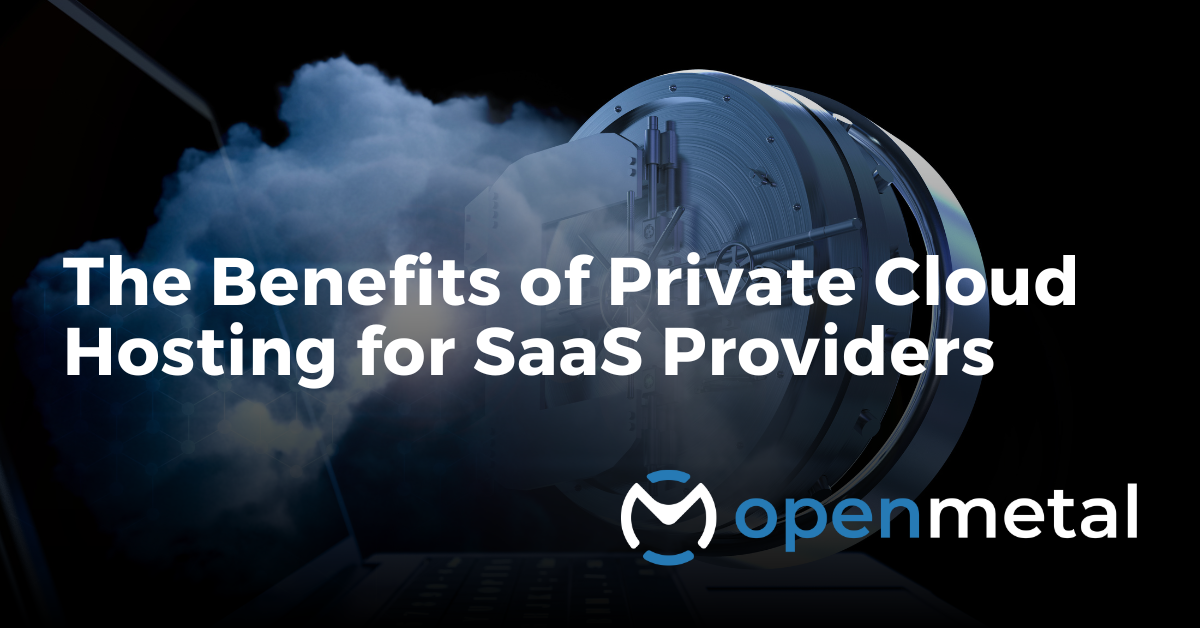SaaS providers overwhelmingly choose public clouds over private clouds. But new private cloud hosting features are changing opinions on the best cloud hosting for SaaS.
Evaluating the Best Cloud Hosting for SaaS
SaaS providers built success on their ability to deliver quality software and service reliability as cost-effectively as possible, to maintain competitive pricing and profitability. That is why SaaS providers typically take the popular option of hosting their services on public clouds. When it comes to the best cloud hosting for SaaS, public clouds offer the convenience to quickly deploy and/or destroy clouds, scale on-demand, and avoid costly upfront costs. But SaaS providers may be overlooking a number of benefits that they could gain from choosing private cloud hosting.
More Control and Customization
SaaS Providers that want great control over customization of their cloud are at a disadvantage with the multi-tenant nature of public clouds. Public clouds are on shared hardware resources. Control is limited to the instances of their cloud and not the supporting infrastructure.
Private cloud hosting allows SaaS Providers to have complete ownership over their infrastructure. This enables users to customize or tune a number of configuration settings such as your ratios of CPU, RAM to improve performance, gain operational efficiencies, and optimize costs.
OpenMetal Gives Root Access to Servers
OpenMetal strengthens private cloud hosting even more by providing ownership over your infrastructure. All users are assigned an initial Cloud Core which is built from a cluster of three bare metal servers with a complete set of features built-in. The Cloud Core can be expanded and offer users root level access to the configuration settings, but is still physically managed by OpenMetal. This allows SaaS Providers to operate their cloud as they choose, without worrying about the well-being of the hardware, which is managed by our support team inside one of our world-class data centers.
Greater Security
The single-tenant environment of private cloud hosting is built to offer a better security posture from the start because data is stored on servers assigned exclusively to you and only you. Your data is isolated from other organizations. Public cloud data is stored on shared servers with other clients in a multi-tenant environment, leaving it more vulnerable to risks associated with authorized access.
The benefits of greater control and customization further strengthens the security advantages of private cloud hosting, because you have more control over your data. Access to server configurations allows you to customize security settings and policies to meet specific needs or requirements.
Gain a Single-Tenant Environment
In addition to delivering single-tenant hardware environments, OpenMetal strengthens the benefits of private cloud hosting by providing network isolation. This ensures that customer cloud cores are further segregated and isolated from other customers all the way down to the switch port. This prevents lateral movements, keeping customers from being able to access and move around the cloud network of another customer, to steal data or do damage. Customers also have the freedom to apply access control lists (ACLs) on modes, to establish user access rules. This segmentation is often a crucial element of a zero trust security strategies. But ultimately, this is about more than simple risk mitigation. It is about delivering a comprehensive and holistic approach to security.
Simpler Scalability
SaaS providers often view public cloud as the easier option for scaling cloud resources up or down to maintain high performance and reliability for their customers. It is viewed as an optimal choice to quickly scale operations, to reduce costs via using pay-as–you go models, and to offer service elasticity. But control over the cloud infrastructure actually makes private cloud hosting a simpler option for scalability.
Private clouds, built on a strong foundation with growth and expansion in mind, can be the optimal choice. Users can implement automation tools such as Kubernetes to easily manage and scale cloud environments. They can customize load balancing and auto-scaling settings to accommodate workload or traffic spikes without any compromises in performance. Additionally, private clouds often use cloud monitoring tools to assess performance and identify potential efficiency risks or to identify opportunities to maximize resource usage.
Deploy On-Demand and Get Built-In Integrations
OpenMetal makes scalability on hosted private cloud even easier. OpenMetal Cloud Cores can be deployed on-demand (in less than a minute), used for as little as an hour, and then be destroyed as quickly. This allows users to spin private clouds up (or down) with the same ease and pay-as-you-go billing as public clouds. It also enables users to add servers, storage, or other private cloud resources as needed.
The Cloud Cores also support ease of scalability by delivering built-in critical components and tools, such as compute, object and block storage, networking, egress allotments, and leading cloud monitoring from DataDog. And because OpenMetal is built on the open source, OpenStack platform, it provides day 1 integrations with systems such as Ceph Storage, Kubernetes, and more.
Optimized Performance
Public clouds are designed to support the general capabilities of broad sets of users. This means that all customers, regardless of their unique needs, mostly use the same standard set of resources allocation, etc.
The control and customization benefits afforded by private cloud hosting allows users to fine tune settings and tailor operations. The environment is not shared. Users are able to modify resource allocations to optimally support specific workload and data needs. This can greatly improve performance and offer greater operational and cost efficiencies..
Accelerate Performance
OpenMetal Cloud Cores allow users to have complete ownership over the Cloud Cores to use all of the resources of the hardware included, not just the virtual resources. But, the build of Cloud Cores offers unique performance advantages for SaaS development teams, as well. The actual physical proximity of the supporting Cloud Core hardware can have the positive effect of speeding access to databases, object storage, etc, accelerating application response, and improving product development and testing productivity.
Cost Advantages
In the end, a lot of SaaS provider cloud decisions come down to cost. It’s not uncommon to hear claims that public cloud is more cost-effective than public cloud. But there are many nuances to the topic of cloud costs that need to be considered. In particular, there is always a cost tipping point to private cloud.
Some will reason that public clouds require no capital or even time investments to build and deploy. Some will argue that the public cloud “pay-as-you-go” model makes it much more cost-effective because you are only paying for the resources you use when you need them. For smaller SaaS provider deployments that are not consuming and/or spending a lot on cloud hosting, they may be right. These views may be short-sighted.
While you have the ability to only use public clouds when you need them, this does not mean that the cost of those resources is cost-effective. Public cloud providers typically bill for more than what you need to reserve capacity for any workload bursts. This results in a high amount of cloud waste that you are paying for and not using. This additional capacity is often reclaimed by public cloud providers to be resold again to others clients. This means that you are not only paying for resources you are not using, you are paying for resources that public cloud providers may be reclaiming and reselling. Additionally, because your use and associated costs may vary each month, it is hard to accurately predict what your public cloud costs will be each month.
As SaaS Providers consume greater amounts of cloud resources, the economies of scale will almost certainly demonstrate that private cloud hosting can be more cost effective and also help SaaS providers to better control their hosting costs.
Utilize the Full Capacity of Resources As You Need Them
OpenMetal has helped to strengthen the argument for private clouds. Like traditional private clouds, OpenMetal allows users to fully use the resources allocated to them. This gives SaaS Providers a fundamental advantage over public clouds to bring down costs as much as 50% when the economies of scale show that utilizing the entire resources of a server is more cost-effective than using pieces of a server’s resources.
But unique to OpenMetal’s services, SaaS providers now have the ability to use the full resources of private cloud hosting, as needed, in the same manner as a pay-as-you-go model. This offers the opportunity to get the economies of scale cost advantages on as little as an hourly billing basis. It’s truly a best-of-all-worlds cloud choice.
Understand Your Individual Advantages
No SaaS provider environment is the same. That is why public clouds often fail to provide the most optimal hosting efficiencies. Every situation is unique. This is also why, even though OpenMetal Cloud Cores can be customized to each SaaS provider’s needs, it is hard to predict all of the benefits that may be gained.
To help SaaS providers understand the actual benefits, OpenMetal offers cloud trials and in-depth proof of concepts (POCs) to demonstrate performance and cost-savings opportunities. Our cloud team is happy to provide a complimentary consultation and then help to build you a real working environment that will directly prove the benefits of private cloud hosting as the best cloud hosting for SaaS Providers. Schedule a complimentary consultation to get started.
More on the OpenMetal Blog…

Reduce AWS Costs and Fuel SaaS Growth
When SaaS providers consume large amounts of public cloud, a move to a hosted private cloud may reduce current AWS costs up to 50%. This can…Read More

AWS Pros and Cons for SaaS Hosting
The efforts of a few mega cloud providers have made public clouds like AWS the de facto option for most SaaS providers. But as with any technology…Read More

Top 10 Concerns SaaS Platform Providers Have About Their Cloud Infrastructure
This article goes into some of the top concerns that SaaS platform providers have about their cloud infrastructure…. Read More
Test Drive
For eligible organizations, individuals, and Open Source Partners, Private Cloud Cores are free to trial. Apply today to qualify.
Subscribe
Join our community! Subscribe to our newsletter to get the latest company news, product releases, updates from partners, and more.




































